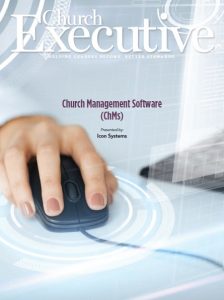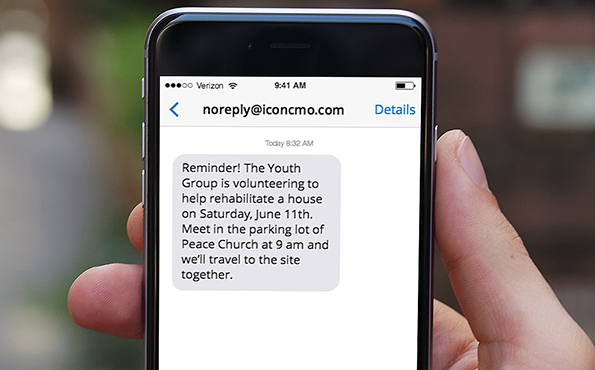
By Bill Gifford
 Don’t waste anyone’s time. Volunteering often takes away from other responsibilities, so use volunteers’ time wisely. With everyone’s packed schedules, a donation of time is just as valuable (if not more) than a donation of money. So, communicate clearly when and where volunteers need to be and exactly what they will be doing. Texting is a great tool for communicating last-minute updates, weather cancellations, and reminders.
Don’t waste anyone’s time. Volunteering often takes away from other responsibilities, so use volunteers’ time wisely. With everyone’s packed schedules, a donation of time is just as valuable (if not more) than a donation of money. So, communicate clearly when and where volunteers need to be and exactly what they will be doing. Texting is a great tool for communicating last-minute updates, weather cancellations, and reminders.
Do use your ChMS to get organized. Create categories and groups so your volunteers are in organized lists. Then, when you need help, you know exactly who to ask.
 Don’t burn out your volunteers. Have your volunteer coordinator touch base regularly to make sure your volunteers aren’t over-committing themselves. Things change over time. Maybe a new mom doesn’t have the extra time and energy to volunteer at VBS this summer. Or, maybe a longtime church member just retired from his job and is looking for new volunteer opportunities.
Don’t burn out your volunteers. Have your volunteer coordinator touch base regularly to make sure your volunteers aren’t over-committing themselves. Things change over time. Maybe a new mom doesn’t have the extra time and energy to volunteer at VBS this summer. Or, maybe a longtime church member just retired from his job and is looking for new volunteer opportunities.
Do recognize which tasks can be done by volunteers and which ought to be done by paid staff. If you have a lot of volunteers, you probably need a full-time volunteer coordinator on staff to organize everything.

Don’t assume people will come to you! Be sure to ask for help in specific, actionable ways. For example, ask, “Can you please hand out bulletins on June 17?” rather than sending an email blast to the entire congregation asking, “Can anyone usher sometime?”
Contact people individually — especially for volunteer roles that represent a bigger time commitment, such as treasurer or Sunday school teacher.
Do find out who isn’t yet signed up to be a volunteer. Get a list of active church members who are not assigned to one of the volunteer groups you created in your ChMS. Get to know them; ask what their skills are and what they’re interested in doing for the church.
Don’t guilt people into volunteering. That’s a situation where everybody loses.
Do tell stories that are inspiring. Show volunteers how their efforts will make a meaningful and significant contribution.
Do n’t assume everyone prefers to communicate the same way you do. Some people prefer emails; some prefer text messages. Others aren’t comfortable with technology and prefer phone calls and traditional mail. If you reach out to them via their preferred method, volunteers will be more likely to get your message and respond.
n’t assume everyone prefers to communicate the same way you do. Some people prefer emails; some prefer text messages. Others aren’t comfortable with technology and prefer phone calls and traditional mail. If you reach out to them via their preferred method, volunteers will be more likely to get your message and respond.
Do leverage your time with group communications. Having your volunteers organized into groups will make it easy to communicate to everyone via text message, email, phone lists or traditional mail.
Don’t forget to thank your volunteers! Let them know they are appreciated and how important they are to the church. As I mentioned before, share stories to let them know how they made a difference. For maximum impact, send a personalized note or make a phone call.
Do ask for feedback. Communication needs to go both ways. People like to be able to give feedback on things; it makes them feel more involved and valued. You can even ask them to share their inspiring stories with others.
Bill Gifford is the president of Icon Systems in Moorhead, MN. For more than 20 years, Icon Systems has been developing software that will meet the needs of any religious organization — from church plants to denominational offices.


